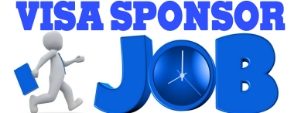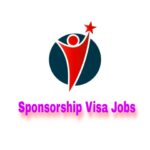Company Jobs
USA Work Visa Sponsorship Jobs: Unlock Opportunities in the U.S.
Job Description
The United States has long been called the land of opportunity, drawing millions of foreign workers each year. Getting a job in the U.S. can change your life—whether you want to grow your career or start fresh. One of the most important parts of this journey is understanding how work visa sponsorship works.
With many visa types to choose from, skilled workers can find roles in technology, healthcare, finance, and other fields. This guide will help you understand how to look for U.S. jobs that offer visa sponsorship and how to start your application.
Key Takeaways
- Learn about different U.S. work visas.
- Discover industries that often hire foreign workers.
- Understand the visa sponsorship process.
- See the benefits of working in the U.S.
- Get tips for finding a sponsorship job.
The Landscape of Work Visa Sponsorship
Visa sponsorship means a U.S. employer supports your work visa application so you can legally work in America. The employer must file paperwork with the government, sometimes proving there isn’t a qualified U.S. worker for the role. Without sponsorship, foreign workers cannot get most work visas.
Why Employers Sponsor Foreign Workers
Employers often sponsor workers when they need specialized skills that are hard to find locally. For example, tech companies may need experienced software engineers, or hospitals may look for trained nurses. Sponsorship helps companies fill gaps and stay competitive, while giving you the chance to build your career.
Types of USA Visa Sponsorship Jobs
Here are some common visas:
H-1B Visa: For specialty occupations requiring at least a bachelor’s degree. Popular in technology and engineering.
L-1 Visa: For employees transferring from a foreign office to a U.S. branch.
O-1 Visa: For individuals with extraordinary ability in fields like science, arts, or business.
TN Visa: For Canadian and Mexican professionals under NAFTA.
E-3 Visa: For Australian professionals.
Finding Jobs with Visa Sponsorship
Searching for sponsorship jobs takes planning:
- Specialized Job Boards: Indeed, Glassdoor, and LinkedIn let you filter for “visa sponsorship.”
- Networking: Join LinkedIn groups, attend conferences, and connect with recruiters.
- Recruiters: Some specialize in helping foreign workers find sponsorship.
USAJOBS for Federal Opportunities
Industries with High Demand
Several industries need sponsored workers:
- Technology: Software development, data science, cybersecurity.
- Healthcare: Doctors, nurses, therapists.
- Engineering: Mechanical, electrical, and civil engineering.
- Finance and Business: Financial analysts, business consultants.
These sectors offer steady demand for skilled professionals.
Companies That Sponsor Visas
Many companies actively sponsor visas:
- Tech Giants: Google, Microsoft, Amazon.
- Multinationals: IBM, Cisco, Intel.
- Emerging Startups: Stripe, Airbnb, Uber.
They often have structured sponsorship programs to support new hires.
U.S. Department of State Visa Information
Qualifications and Skills
To qualify for sponsorship, you usually need:
- A bachelor’s degree or higher.
- Relevant work experience.
- Strong English skills.
- Willingness to adapt to American work culture.
Education and Skills Requirements for Visas
Application Process
- Resume: Use a clear format with achievements and keywords.
- Interview: Research the company and practice answers.
- Sponsorship Discussion: Wait for the right time to bring it up, usually after an offer is on the table.
Preparing for Your Visa Interview
Visa Application Timeline
Once hired:
- Your employer files a petition with USCIS.
- You submit a visa application.
- You attend an interview at a U.S. consulate.
- You wait for approval.
This can take months to over a year.
Salary and Benefits
Salaries vary widely:
- Tech H-1B salaries: $80,000–$150,000+
- Healthcare roles: Competitive pay and often relocation assistance.
Remember to factor in cost of living by city.
Legal Considerations
Employers must:
- File petitions.
- Prove the job meets visa requirements.
- Verify you’re qualified.
Employees must:
- Work only for the sponsoring employer.
- Follow visa terms.
It’s often smart to consult an immigration lawyer.
Find a Legal Immigration Resource
Conclusion: Your Path to Success
Finding a U.S. job with visa sponsorship isn’t easy—but it’s possible. With research, preparation, and persistence, you can unlock opportunities and build a fulfilling career in America.
FAQ (Short Answers)
What is the most common visa?
H-1B, especially in tech.
How do I find visa sponsorship jobs usa?
Job boards, networking, recruiters.
What are typical qualifications?
Degree, work experience, English skills.
Can I apply without a job offer?
Usually no—you need an employer sponsor.
How long does the process take?
Several months to over a year.
Are there costs?
Yes—application fees and legal costs.
Can my family come?
Yes, with dependent visas.
What is the difference between H-1B and L-1?
H-1B = specialty job; L-1 = internal company transfer.
Can I switch employers?
Yes, but you need a new petition.
Are some jobs restricted?
Yes—some visas require specific skills or roles.


